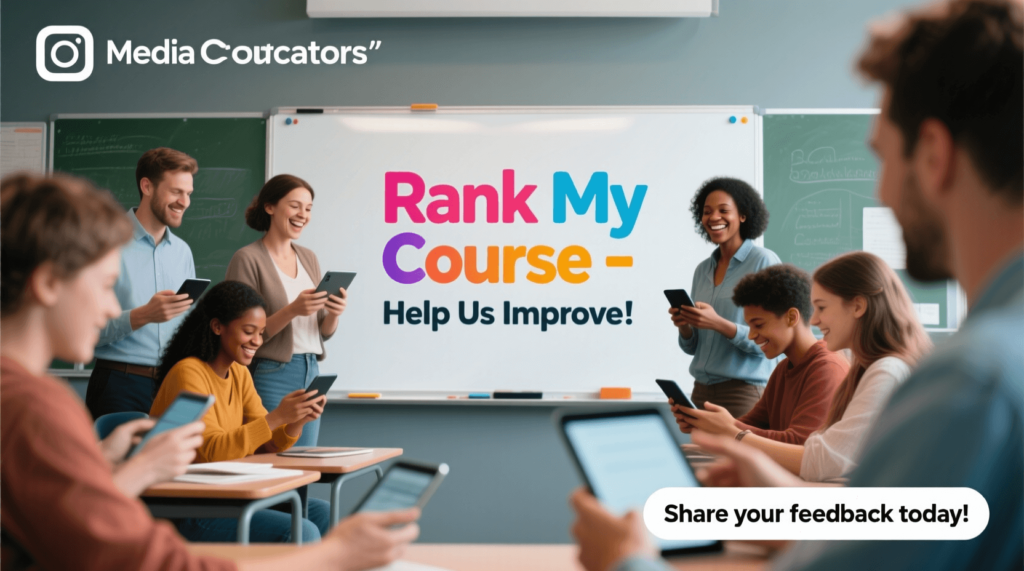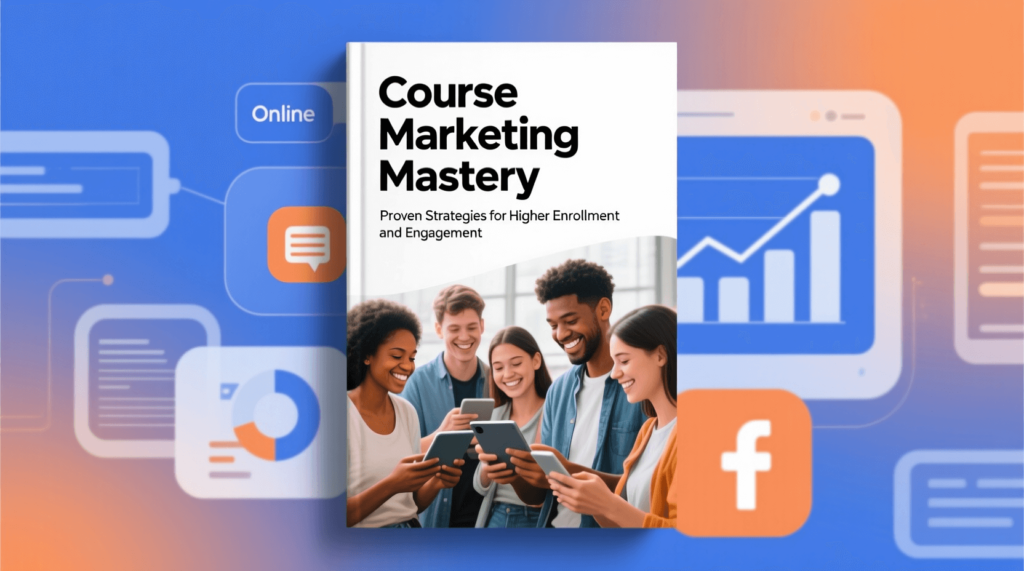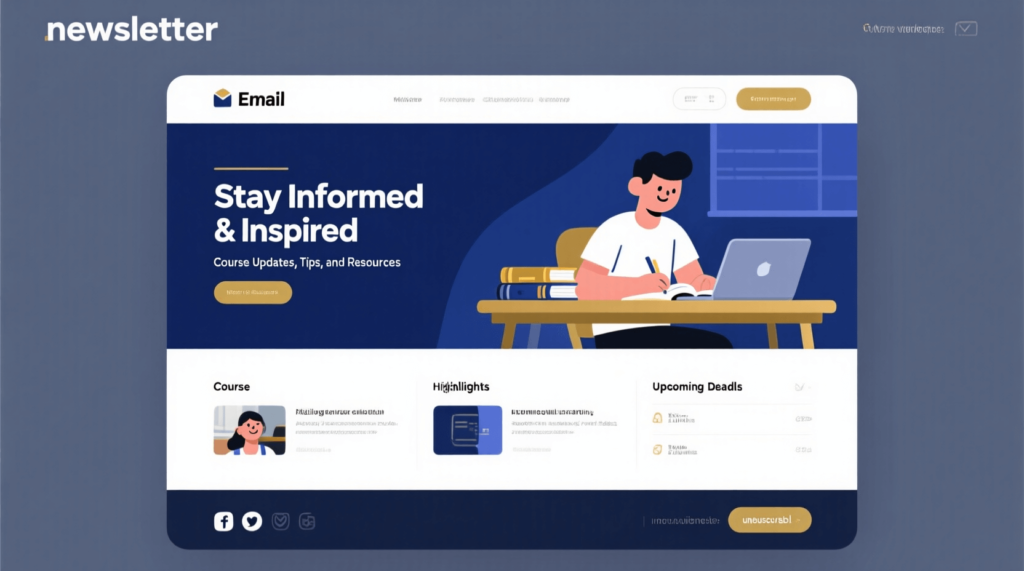Content marketing for online courses involves creating and sharing valuable material that attracts, educates, and engages potential learners. This includes blog posts, videos, podcasts, infographics, social media posts, and newsletters that provide relevant information related to your course topics.
Producing consistent, high-quality content helps course providers build authority in their niche. Sharing insights, tips, and practical knowledge demonstrates expertise and positions the course creator as a trusted resource for learners.
What are the Benefits for Course Providers?
Content marketing helps attract and nurture students by providing useful information that addresses their needs and questions. Engaging content keeps learners interested and encourages them to explore your course offerings.
Consistently producing valuable content increases course enrollment. Potential students are more likely to trust and sign up for courses when they see expertise demonstrated through informative blogs, videos, or social posts.
Content marketing also establishes long-term credibility. Sharing knowledge, insights, and success stories positions course providers as trusted authorities, which strengthens reputation and encourages repeat engagement over time.

Blogging and SEO for Course Creators
Blogging is a powerful way for course creators to share expertise, attract potential students, and drive traffic to their course landing pages. When combined with SEO, blogs can significantly increase visibility and long-term enrollment opportunities.
Blog Topics for Course Creators
Focus on topics that address your learners’ questions, pain points, and goals. Share actionable tips, tutorials, case studies, and industry insights to engage students and demonstrate your expertise. Thoughtful blog topics can position your course as a valuable resource in your niche.
SEO Tips
Optimize each blog post for search engines to increase visibility and organic traffic. Use keyword-rich titles, meta descriptions, headers, and internal links. Incorporate multimedia, alt text for images, and quality outbound links to improve search rankings and user experience.
Read our blog on Keyword Research for Online Courses at RankMyCourse to learn how to reach more students effectively.
Video Marketing for Courses
Video marketing is a powerful tool for course creators to showcase content, teaching style, and course benefits. Videos help engage learners visually and provide a dynamic way to communicate complex ideas.
Course Teasers and Tutorials
Use course teasers or mini-lessons to give potential students a preview of what your course offers. Short, engaging videos can highlight key topics, demonstrate teaching style, and encourage learners to enroll. Tutorials provide actionable insights while showcasing the quality and value of your course content.
Student Testimonials and Q&A Sessions
Share video testimonials from past students to build trust and demonstrate course effectiveness. Host live or recorded Q&A sessions to address questions and engage with your audience directly. These videos create social proof, increase credibility, and help convert potential learners into paying students.
Email Marketing Content Ideas
Email marketing helps course creators maintain engagement, build relationships, and drive enrollments. Thoughtful email content nurtures leads and keeps learners connected to your courses.
Newsletters and Drip Campaigns
Use newsletters and drip campaigns to keep learners informed and engaged over time. Share tips, insights, updates, and relevant resources that add value. Consistent communication helps maintain interest and encourages learners to return to your course content regularly.
Promotional Email Sequences
Create promotional email sequences to convert subscribers into paying students. Highlight course benefits, share success stories, offer limited-time incentives, and include clear calls-to-action. Well-structured email campaigns guide potential learners toward enrollment effectively.

Social Media Content for Educators
Social media helps course creators reach a wider audience, build a community, and keep learners engaged. Consistent, value-driven posts strengthen your brand and attract potential students.
Engagement Posts and Micro-Lessons
Share tips, challenges, or behind-the-scenes content to keep followers interested. Micro-lessons offer quick, actionable insights that demonstrate your expertise and give learners a preview of your teaching style. Interactive posts encourage likes, comments, and shares, increasing visibility.
Repurposing Content Across Platforms
Maximize reach by repurposing your content for multiple social media channels. Turn blog posts into infographics, short videos, or carousel posts. Adapting content for different formats and audiences ensures consistent messaging and amplifies your course promotion efforts.
Webinar Ideas to Sell Courses
Webinars are an effective way to showcase expertise, build trust, and promote your courses directly to interested learners. They provide live interaction and an opportunity to convert attendees into students.
Read our blog on How to Market an Online Course at RankMyCourse to learn practical tips for reaching more students.
Live Sessions and Workshops
Host live sessions or workshops to demonstrate your teaching style and course content. These sessions give potential learners a firsthand experience of the value your course provides and help establish credibility in your subject area.
Interactive Q&A Sessions
Conduct interactive Q&A sessions to engage your audience and answer common questions. Addressing concerns directly helps build trust, clarifies course benefits, and encourages participants to enroll with confidence.

eBook Topics for Course Marketing
eBooks are valuable content tools for course creators to attract leads, provide in-depth knowledge, and position themselves as authorities in their niche. Well-planned eBooks can generate interest, build trust, and support enrollment efforts.
Lead Magnets and Downloadables
Use eBooks, templates, checklists, or guides as lead magnets to grow your email list. Offering free, high-quality resources encourages potential learners to share their contact information and engages them with your brand early.
Topic Ideas for Your Audience
Select eBook topics that solve specific problems or provide actionable insights relevant to your target learners. Focus on challenges your audience faces and present practical solutions to establish credibility and demonstrate the value of your courses.
Podcast Episode Ideas for Educators
Podcasts allow course creators to share expertise, insights, and stories in an engaging audio format. They help build authority, connect with learners, and expand your reach to new audiences.
Interviews and Educational Episodes
Host interviews with industry experts or record educational episodes to share practical knowledge. These formats showcase your expertise, provide value to listeners, and highlight the benefits of your courses.
Building a Loyal Audience
Engage learners consistently to grow a loyal podcast audience. Encourage subscriptions, solicit feedback, and interact with listeners through Q&A or social media to maintain interest and drive awareness for your courses.
Case Study Content for Courses
Case studies provide concrete examples of course effectiveness and help potential students see real-world outcomes. They build credibility and reinforce the value of your offerings.
Read our blog on SEO Strategy for Course Creators at RankMyCourse to learn simple ways to improve visibility and attract more students.
Student Success Stories
Share detailed student success stories to demonstrate tangible results and highlight how your course has helped learners achieve their goals. Including measurable outcomes, testimonials, and personal experiences strengthens trust and encourages enrollment.
Sharing Lessons Learned
Publish lessons learned from course experiences, challenges, or projects to provide actionable insights. Offering this knowledge adds value, inspires potential students, and positions your course as a reliable resource for growth and learning.
Infographic Topics for Course Promotion
Infographics are a powerful way to convey complex information quickly and visually. They help course creators simplify content, make it more engaging, and increase shareability across platforms.
Visualizing Key Insights
Use infographics to present key insights, concepts, or processes from your course. Clear visual representation makes content easier to understand, helping learners grasp important information quickly and remember it longer.
Highlighting Data and Tips
Highlight important data, statistics, or actionable tips in an infographic format. Visualizing information improves engagement, encourages sharing, and reinforces learning by making key points memorable for your audience.

Newsletter Themes for Course Audience
Newsletters help course creators maintain consistent communication with learners, share valuable insights, and drive course engagement. Thoughtfully themed newsletters keep your audience interested and connected.
Educational Updates
Share tips, mini-lessons, or course announcements to provide ongoing value. Educational updates position you as a trusted resource and encourage learners to continue engaging with your content over time.
Promotional and Engagement Content
Include promotional offers, new course launches, or interactive content to encourage enrollment and maintain engagement. Well-crafted newsletters balance value with promotional messaging to nurture subscribers effectively.
Conclusion
Content marketing helps course providers attract learners, build authority, and boost enrollments by sharing valuable content across blogs, videos, social media, and newsletters. Experimenting with multiple formats and channels maximizes reach and engagement. Join the Learning Curve for weekly marketing insights to grow your online courses effectively.
FAQs
How often should course providers publish content?
Publish content consistently to stay visible and engage your audience. A regular schedule, whether weekly, biweekly, or monthly, helps maintain interest and builds trust over time.
Which content formats convert best for online courses?
Formats that provide value and demonstrate expertise tend to convert best. Blog posts, videos, webinars, eBooks, and case studies help learners understand course benefits and make enrollment decisions.
How can content be repurposed effectively?
Repurpose content by transforming blogs into videos, infographics, podcasts, or social media posts. Adapting material for different formats and platforms maximizes reach and reinforces key messages.
What tools can help with content marketing for courses?
Use tools like Trello or Notion for planning, Canva for graphics, WordPress for blogging, Mailchimp for email campaigns, and social media schedulers to manage and optimize content distribution efficiently.